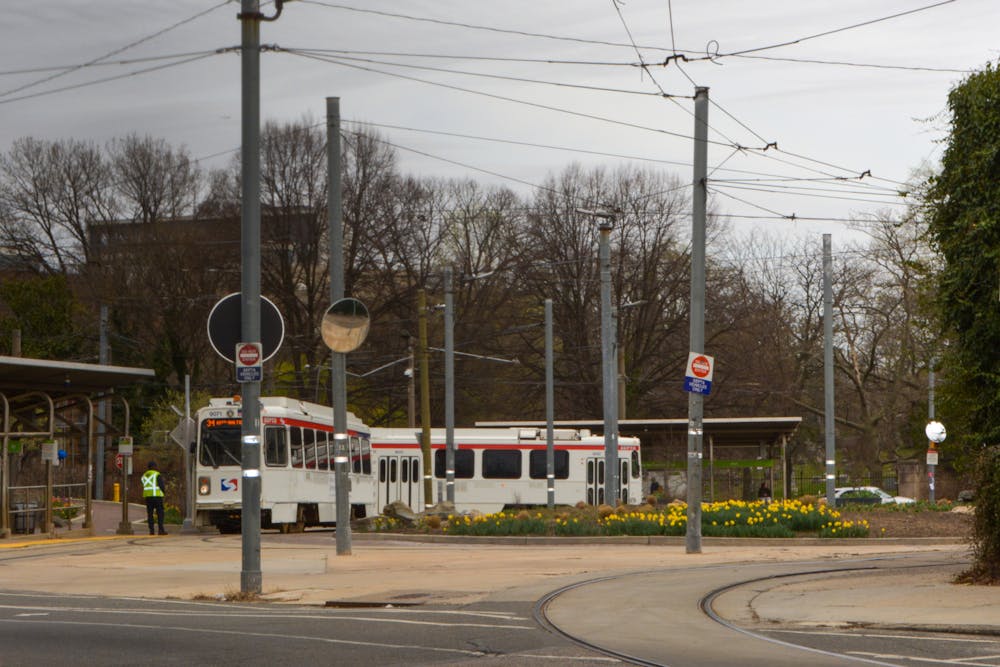
On April 10, SEPTA announced it may increase prices and cut bus and train routes.
Credit: Hope ApplegatePenn students expressed strong reactions to potential price hikes and service cuts for SEPTA that were announced last week.
On April 10, SEPTA — the main public transportation authority that serves Philadelphia — announced it may increase prices and cut bus and train routes if its funding gap in Pennsylvania’s state budget is not addressed. SEPTA told CBS News the cuts would include a 21.5% fare hike and a 45% overall reduction of service.
Among these changes to service would be the elimination of 50 bus routes and five Regional Rail train lines, the closure of 66 stations, and reduction of total trains by 20% during peak hours on the surviving routes. There would also be a 9 p.m. curfew on all subways and trolleys, as well as workforce reductions that would include a hiring freeze.
For routes running through Penn’s campus, changes would affect the Market-Frankford Line, the 12, 21, 40, 42, and 49 buses, and all trolley routes. The 30 and 31 bus routes — which run eastward through Penn’s campus from the suburb of Millbourne — would be eliminated completely.
In a written statement to The Daily Pennsylvanian, a SEPTA representative wrote that these cuts would “effectively dismantle SEPTA,” making the system less affordable, frequent, and reliable. He added that decreased SEPTA service would increase congestion on roadways.
“Of the 800,000 daily trips that our customers take how, we expect we would lose at least 350,000 immediately, and more would follow with additional cuts and fare increases in subsequent years,” the representative wrote.
In November 2024, Pennsylvania Gov. Josh Shapiro redirected $153 million in federal highway money to fund SEPTA, preventing a 21.5% rate hike and 20% in service cuts that SEPTA had planned to go into effect in the beginning of 2025.
However, this one-time infusion has not addressed SEPTA’s long-term shortfall in funding, officials have said.
Republican lawmakers, who control Pennsylvania’s State Senate, have blocked agreements on SEPTA funding with Shapiro and the Democratic-controlled House, arguing that SEPTA’s tax burden should not be placed on Pennsylvanians who live outside the Philadelphia area.
College first year Greyson Forster — a member of SEPTA’s Youth Advisory Council — wrote in a statement to the DP that in the absence of state funding, the legislature needs to “give the counties of southeastern Pennsylvania the ability to levy sales and/or property taxes on themselves” to fund SEPTA.
Forster added that “these changes will be detrimental to the mobility and livelihood of Penn students, staff, and faculty.”
College first year Linda Gayle said that she finds SEPTA to be “already quite expensive,” emphasizing the impact of the 9 p.m. curfew.
“I feel like most of the time that I use SEPTA is often later at night, and that’s one of the safer ways to get around the city if we're out at that time,” Gayle said.
Gayle added her concern about how the cuts would affect not just Penn students, but the wider Philadelphia community.
“That’s really going to affect the ability of people to move around, to get to work, to live freely,” Gayle said.
The Daily Pennsylvanian is an independent, student-run newspaper. Please consider making a donation to support the coverage that shapes the University. Your generosity ensures a future of strong journalism at Penn.
Donate







